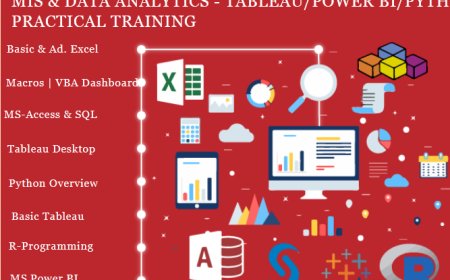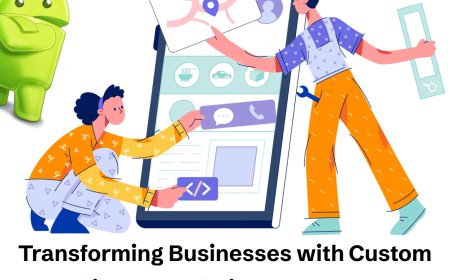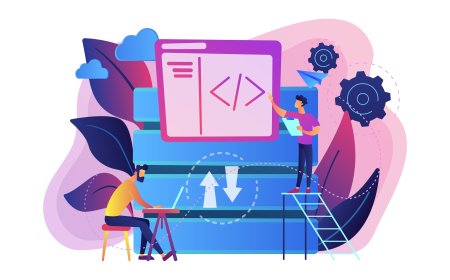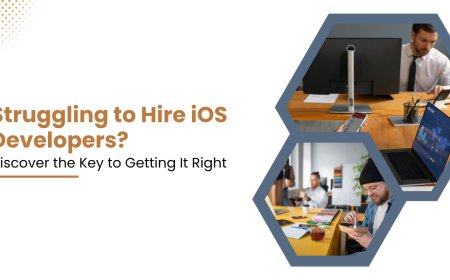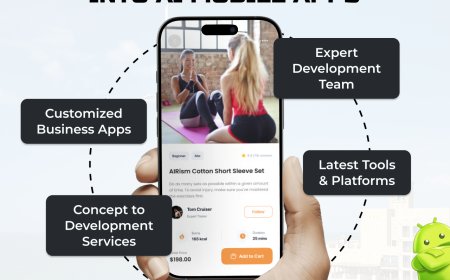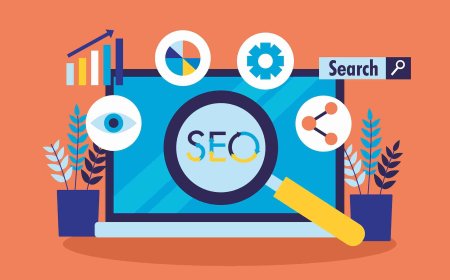The Future of AI: How Artificial Intelligence Is Reshaping Our World
This shows just how far AI has reached, even in lifestyle industries.Keeping up with AI’s evolution is no longer optional—it’s essential. The future of AI isn't just about machines—it's about how we choose to use them.

Artificial Intelligence (AI) is no longer a concept limited to science fiction. Its present in our homes, workplaces, schools, and even in the devices we carry in our pockets. AI is reshaping the way we live, work, and make decisions. This blog takes a closer look at how AI is evolving, where its heading, and how it's influencing major aspects of our worldincluding a few industries you may not expect.
What Is Artificial Intelligence?
AI refers to machines that are designed to mimic human intelligence. These systems can perform tasks that typically require human thinking, such as problem-solving, learning, language understanding, and decision-making.
There are two broad types of AI:
-
Narrow AI: AI systems built for a specific task. Examples include voice assistants like Siri or Alexa and recommendation systems used by Netflix or Amazon.
-
General AI: A more advanced form that could perform any intellectual task a human can. This is still under development and remains a long-term goal.
AI uses methods such as machine learning, neural networks, and natural language processing to operate. With access to large data sets and computing power, it continues to improve and expand its capabilities.
Major Areas Where AI Is Making an Impact
1. Healthcare and Medical Research
AI is transforming healthcare by helping doctors diagnose diseases more accurately, faster, and at lower costs. It's especially effective when working with large amounts of data, like medical images or genetic information.
Some key uses include:
-
AI-assisted diagnostics: Algorithms that analyze X-rays, MRIs, and CT scans for early signs of illness.
-
Predictive analytics: Identifying patients at risk of specific diseases based on their medical history.
-
Drug development: Reducing the time and cost needed to bring new drugs to market.
Companies like Googles DeepMind have made breakthroughs in protein foldinga complex biological process essential to disease research and drug development.
2. Business and Automation
AI is helping businesses operate more efficiently. Whether its in customer service, finance, or logistics, AI tools can automate routine tasks and provide insights for better decision-making.
-
Chatbots and virtual assistants respond to customer inquiries 24/7.
-
Supply chain management benefits from AI's ability to predict demand and optimize inventory.
-
Fraud detection systems use AI to flag unusual patterns in financial transactions.
Small and large businesses alike are using AI to reduce costs, improve services, and increase productivity.
3. Transportation and Autonomous Vehicles
AI plays a major role in the future of mobility. Self-driving cars rely on machine learning, sensors, and real-time data to navigate roads safely.
-
Autonomous trucks are being tested for long-haul freight.
-
Traffic prediction apps use AI to suggest faster routes.
-
Fleet management systems improve logistics and fuel efficiency.
While fully autonomous vehicles are still being tested, partial automation is already here through driver-assist features found in many modern cars.
4. Everyday Consumer Technology
From smartphones to smart homes, AI has become a part of daily life. Many of the tools we use are powered by AI even if we dont notice it.
-
Voice assistants like Google Assistant and Alexa interpret voice commands.
-
Smart home devices learn our behavior to adjust lighting, temperature, and security settings.
-
Streaming platforms recommend music, movies, and shows based on viewing history.
Even in lifestyle choices, AI is having an influence. For example, the nicotine disposable vape market is using AI to manage inventory and improve user experience through app integration and AI helps brands analyze consumer preferences to guide product development.
Key Trends Shaping the Future of AI
AI is developing rapidly. Here are some trends and predictions that are likely to shape its path over the next decade:
1. Generative AI and Creativity
Generative AI tools like ChatGPT and DALLE can create text, images, and even music. This has sparked new possibilities in content creation, design, and marketing. Its also raising questions about copyright, misinformation, and authenticity.
2. AI Ethics and Regulation
As AI becomes more powerful, discussions around ethics are growing. Concerns include:
-
Bias in AI algorithms leading to unfair decisions.
-
Privacy issues related to data collection and surveillance.
-
Job displacement in industries heavily affected by automation.
Governments and institutions are beginning to propose guidelines and regulations to ensure AI is used responsibly.
3. AI in Education
AI is reshaping education through adaptive learning systems, personalized tutoring, and automated grading. These tools allow students to learn at their own pace and give teachers insights into performance.
However, the use of AI in education also calls for careful implementation to avoid over-reliance on technology and to ensure equal access.
4. Human-AI Collaboration
Rather than replacing humans, the future of AI is about partnership. Many workplaces are now combining human decision-making with AI-generated insights.
Examples include:
-
Doctors using AI tools to confirm diagnoses.
-
Writers using AI to brainstorm ideas.
-
Engineers using simulation tools to test product designs before building.
This collaboration can boost productivity without removing the human element.
Realistic Expectations for AIs Future
Its important to keep expectations realistic. While AI can do many things well, it also has limitations:
-
AI systems rely heavily on the data they are trained on. If the data is flawed, the results will be too.
-
AI cannot truly understand emotions, context, or abstract thinking in the way humans do.
-
Full automation is not practical in many areas due to ethical, legal, and safety concerns.
Instead of focusing on AI replacing everything, its more useful to see it as a powerful toolone that, when used properly, can help people solve problems and increase efficiency.
Conclusion
AI is not a future conceptits here and growing fast. From medicine to manufacturing, entertainment to education, AI is influencing the way we live and work. While it offers real benefits, it also brings challenges that society must face together.
As we move forward, understanding AI and its implications will be key to making informed choiceswhether you're a developer, a business owner, a consumer, or just someone curious about technology.
The zero nicotine vape are influenced by AI trends in product personalization, inventory management, and digital engagement.




















